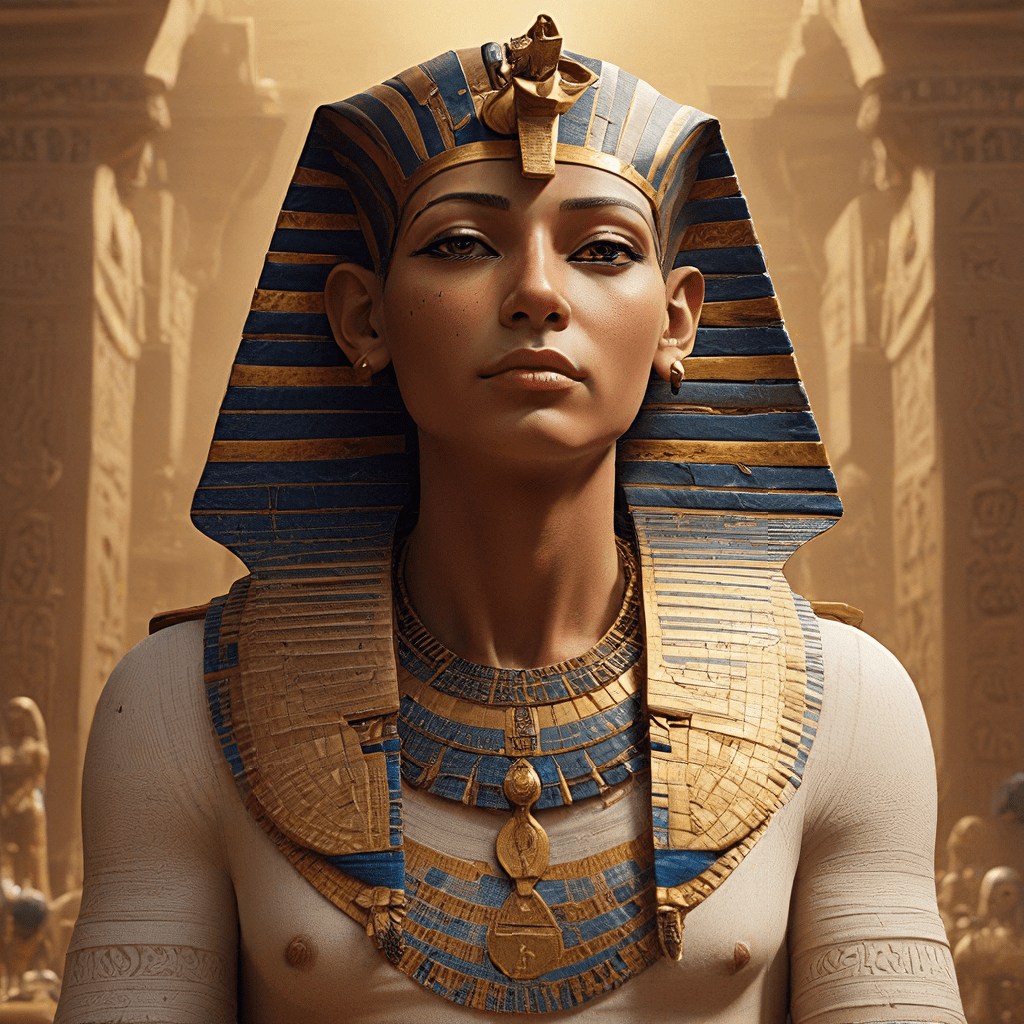The Pharaoh’s Dream: Unveiling the Aspirations and Visions of Ancient Egypt’s Leaders
In the ancient world, dreams held immense significance, particularly in the culture of ancient Egypt. The Pharaoh, revered as a divine ruler, was believed to be in direct communication with the gods through dreams. These dreams were not mere fleeting visions but powerful conduits of divine messages, shaping the Pharaoh’s aspirations, guiding their decisions, and defining the course of their reign.
The Pharaoh as a Divine Ruler
The Pharaoh, the ultimate authority in ancient Egypt, was viewed as a divinely appointed king, a bridge between the mortal realm and the celestial realm. It was believed that the Pharaoh was chosen by the gods to rule and ensure the well-being of Egypt. This divine mandate placed a profound responsibility on the Pharaoh, demanding them to uphold the cosmic order, maintain peace and prosperity, and protect the land from its enemies.
The Role of Dreams in Ancient Egyptian Culture
Dreams were considered a powerful medium of communication in ancient Egypt. They were believed to be messengers from the gods, offering guidance, warnings, and insights into the future. The Egyptians possessed a deep reverence for dreams, believing they held clues to the mysteries of life, death, and the afterlife. They attributed dreams to various supernatural forces, including gods, spirits, and the deceased. They meticulously recorded their dreams, seeking to unravel their messages and divine interpretations.
The Pharaoh’s Dream: A Vehicle for Divine Communication
The Pharaoh, as the divine representative of the gods, was believed to receive vital messages through dreams. These divinely inspired dreams provided the Pharaoh with strategic foresight, enabling them to make crucial decisions for the nation. They were seen as a manifestation of the gods’ will, guiding the Pharaoh’s actions and policies. The Pharaoh’s dreams became a conduit for the gods to communicate their aspirations and visions for Egypt.
Aspiration: A Stable and Prosperous Kingdom
One of the paramount aspirations of the Pharaoh, often revealed in dreams, was to ensure the stability and prosperity of their kingdom. The Pharaoh’s dreams reflected their deep desire for a flourishing Egypt, where the Nile flowed abundantly, harvests were plentiful, and the people lived in harmony. These dreams served as a reminder of the Pharaoh’s responsibility to maintain the delicate balance of the cosmos and the divine order upon which Egypt’s well-being depended.
Vision: Expansion and Conquest
Another recurring theme in the Pharaoh’s dreams was the expansion of the Egyptian empire. Driven by a desire for power and glory, Pharaohs often dreamt of conquering new territories, extending their dominion, and bringing foreign lands under their control. These dreams reflected their ambition to secure the resources and prestige necessary to strengthen Egypt’s position in the ancient world.
Examples of Pharaoh’s Dreams in Ancient Egyptian Texts
The ancient Egyptians meticulously recorded their dreams in texts and inscriptions, providing insights into their beliefs and aspirations. One notable example is the dream of Pharaoh Thutmose III, who dreamt of conquering the city of Megiddo. This dream is documented on the walls of the temple of Karnak, where it is depicted as a divine message guiding the Pharaoh towards military victory.
The Pharaoh’s Dream: A Tool for Political Legitimacy
The Pharaoh’s dreams, perceived as divine revelations, played a crucial role in legitimizing their rule. By presenting themselves as conduits of the gods’ will, Pharaohs strengthened their authority and solidified their position as divinely appointed leaders. The dreams became a powerful tool for reinforcing their power and bolstering their claims to the throne.
The Pharaoh’s Dream and the Construction of Monuments
The Pharaoh’s dreams often inspired the construction of magnificent monuments, such as pyramids, temples, and obelisks. These grand structures were intended to honor the gods and immortalize the Pharaoh’s achievements. They were seen as tangible expressions of the Pharaoh’s vision and a testament to the divine favor bestowed upon them.
The Legacy of the Pharaoh’s Dream
The belief in the Pharaoh’s dream as a source of divine inspiration persisted throughout ancient Egyptian history. It became an integral part of their culture, shaping their beliefs, rituals, and artistic expressions. The legacy of the Pharaoh’s dream continues to capture the imagination today, offering a glimpse into the aspirations and visions of a bygone era.
The Pharaoh’s Dream: A Window into the Ancient Egyptian Psyche
The Pharaoh’s dreams provide a unique window into the ancient Egyptian psyche. By examining their dreams, we can gain a deeper understanding of their worldview, their aspirations, and their relationship with the divine. These dreams offer a fascinating glimpse into the mind of the Pharaoh, revealing a world where dreams held profound significance and served as a powerful force in shaping the destiny of a nation.




